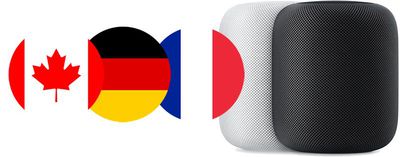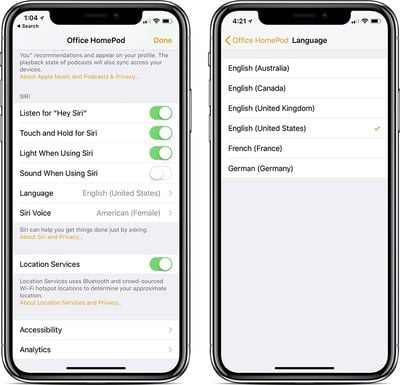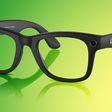Apple today announced that the HomePod will be available in Canada, France, and Germany beginning June 18, but ahead of then, the speaker has gained support for languages and dialects spoken in each country.

Today's new 11.4 software update for HomePod enables Siri to speak in French, German, and Canadian English in any region, including the United States. Apple says Canadian French will be added in a subsequent software update coming later this year, but it has not provided a specific timeframe as of yet.
The new software update should be pushed to the HomePod automatically after updating to iOS 11.4 on a paired iPhone, iPad, or iPod touch, but it can also be installed manually through the speaker's settings in the Home app.
To change a HomePod's default language, open the Home app on a paired iPhone, iPad, or iPod touch running iOS 11.4, 3D Touch or long press on the HomePod's icon, tap on Details, and tap on Languages. There are now six languages, including the previous options of U.S. English, U.K. English, and Australian English.

Canadian residents who purchased a HomePod in the United States, for example, can now switch from American English to Canadian English.
While the switch from American English to Canadian English doesn't yield any significant differences, it does allow the language of a paired iOS device to be set back to Canadian English as well, as in Canada, a HomePod and paired iOS device must be set to the same language for Siri to deliver Personal Requests.
Despite support for Canadian English, the HomePod still isn't completely localized for Canada, as Siri still doesn't work with music charts, for example, as demonstrated by MacRumors reader Pedro Marques in the video below.
Of course, the HomePod should gain support for additional languages as it launches in more countries in the future.






















